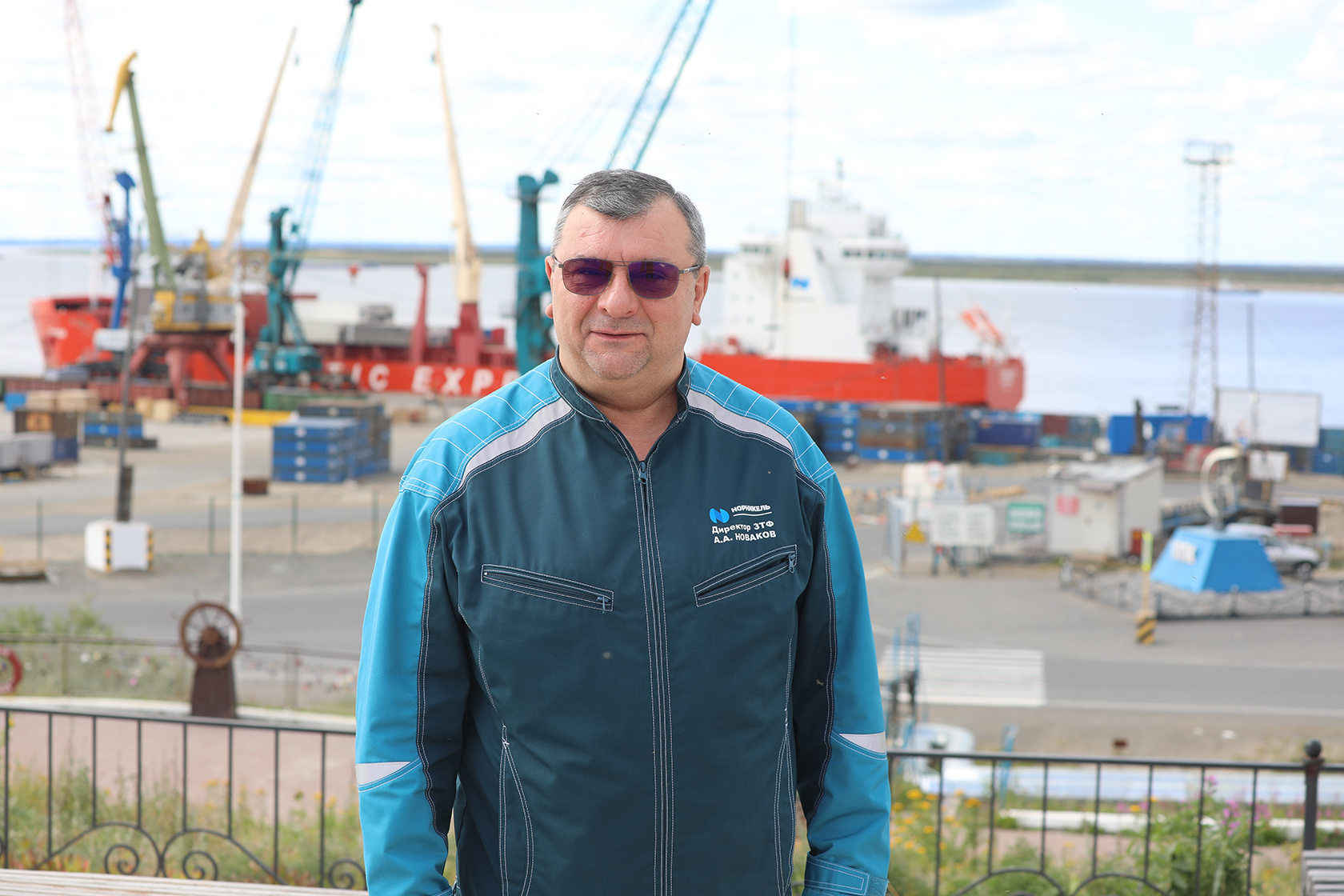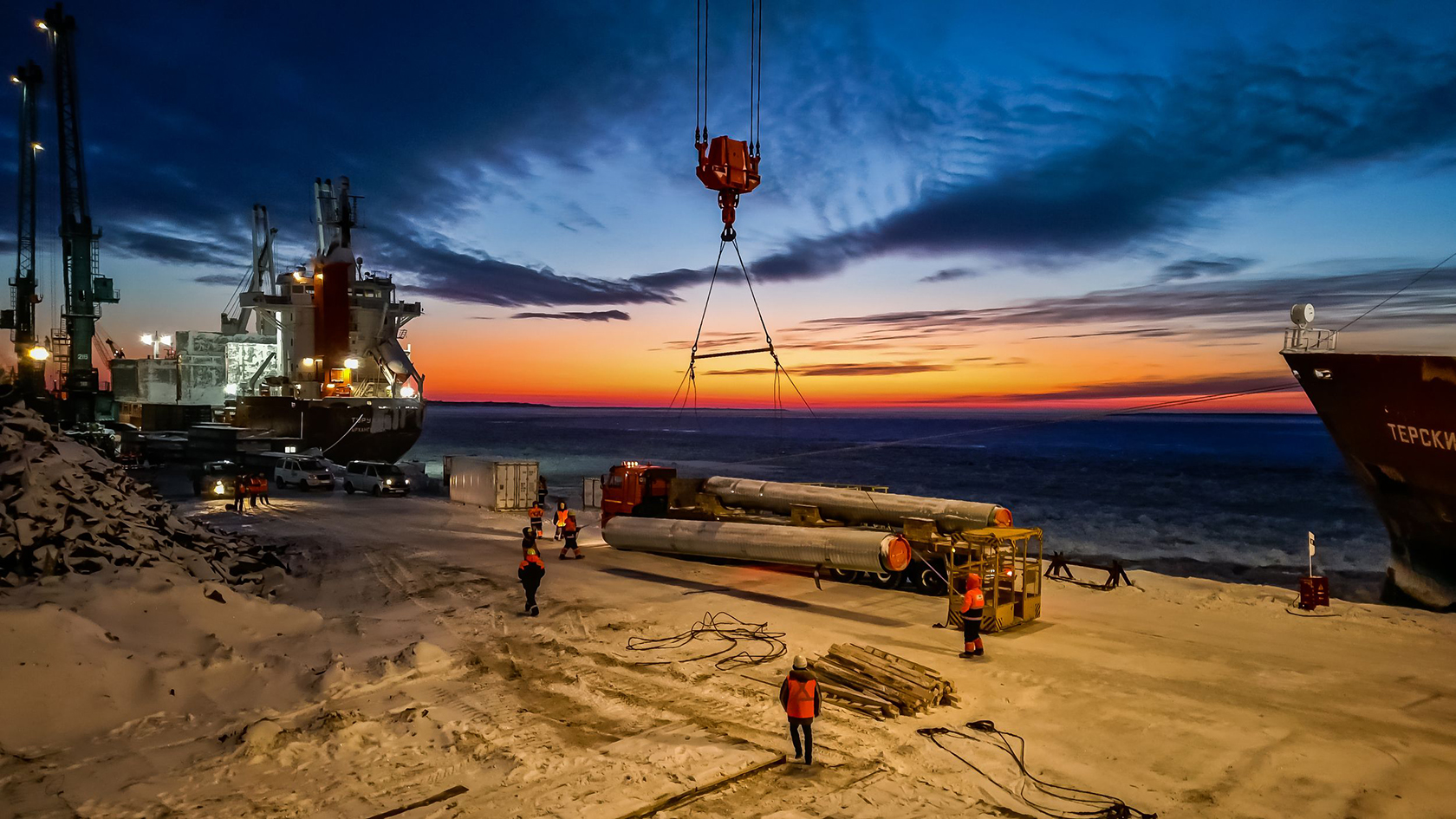Every large enterprise in Russia faces labor and skilled workforce shortages. But not the Dudinka port which has learned how to attract and retain talent, including representatives of indigenous peoples. Director of the port Aleskey Novakov shares how the company manages to address the staffing shortage.
– Do residents of Dudinka work at the port or is the rotational method used?
– We employ mostly residents of Dudinka with 20,000 people. Our company is a city-forming business. It is prestigious to work at the port, and we often have several generations of the same family working for us. We encourage labor dynasties.

We work with children from school days, invite them to visit us, and organize exhibitions of port equipment. We cooperate closely with the local college and boarding school, where children from remote settlements live. Last year, we initiated a training group there for tower crane operators. The competition for the program was greater than for some universities!
VR simulators of a portal crane, mobile crane, and heavy loader
were installed by the company at the Taimyr College in Dudinka in 2024 so that children could learn the trades that the Port needs. In summer, we put the fourth VR simulator on the summer embankment in Dudinka. During the holidays, there's a line for it as long as the one for cotton candy.
– So, you count on the youth of Dudinka, don’t you?
– Yes, we do. We have young people living here who are fully integrated into the life of the region, adapted to everyday and social activities. They are committed to the values essential for working with the Polar Transport Branch.
It’s not just crane operators we train. We also train power engineers, mechanics, slingers, and other specialists. The company runs the refresher courses. We also develop our management personnel and form career elevators.
It is important for people to be confident that they can make a career in the company by working diligently. We provide them with decent working and living conditions. We have our home KVN team (Club of the Merry and Witty), a creative team, everything is available for sports activities. The Polar Transport Branch is at the forefront of all Nornickel’s social programs.
It’s not just crane operators we train. We also train power engineers, mechanics, slingers, and other specialists. The company runs the refresher courses. We also develop our management personnel and form career elevators.
It is important for people to be confident that they can make a career in the company by working diligently. We provide them with decent working and living conditions. We have our home KVN team (Club of the Merry and Witty), a creative team, everything is available for sports activities. The Polar Transport Branch is at the forefront of all Nornickel’s social programs.
656 square meters
is the area of the sports and recreation center for the Dudinka Port employees.
– Do you hire on rotational basis?
– We dramatically increase our staff by 200-300 people in some periods. For example, during the summer river navigation season, when the cargo turnover rises. We hire people from the mainland to work on a rotational basis. We built a camp with dormitories, canteens and showers for them. The conditions are very comfortable. People are incorporated into the company's payroll with a full benefits package. Many shift workers join us permanently.
– The Polar Transport Branch leads the ESG agenda. And what about indigenous peoples support, which is one of its key elements?
– We believe that once Nornickel has embarked on the path of ESG development, this commitment should extend to all our practices. Approximately 10% of our employees are representatives of small-numbered indigenous peoples. According to my conservative estimates, this is one of the best indicators in Russia. We work with the small-numbered indigenous peoples and their children who attend our college. The Polar Transport Branch gives them a professional qualification and always offers them a job.
Photos by Nornickel
October, 2024
October, 2024













